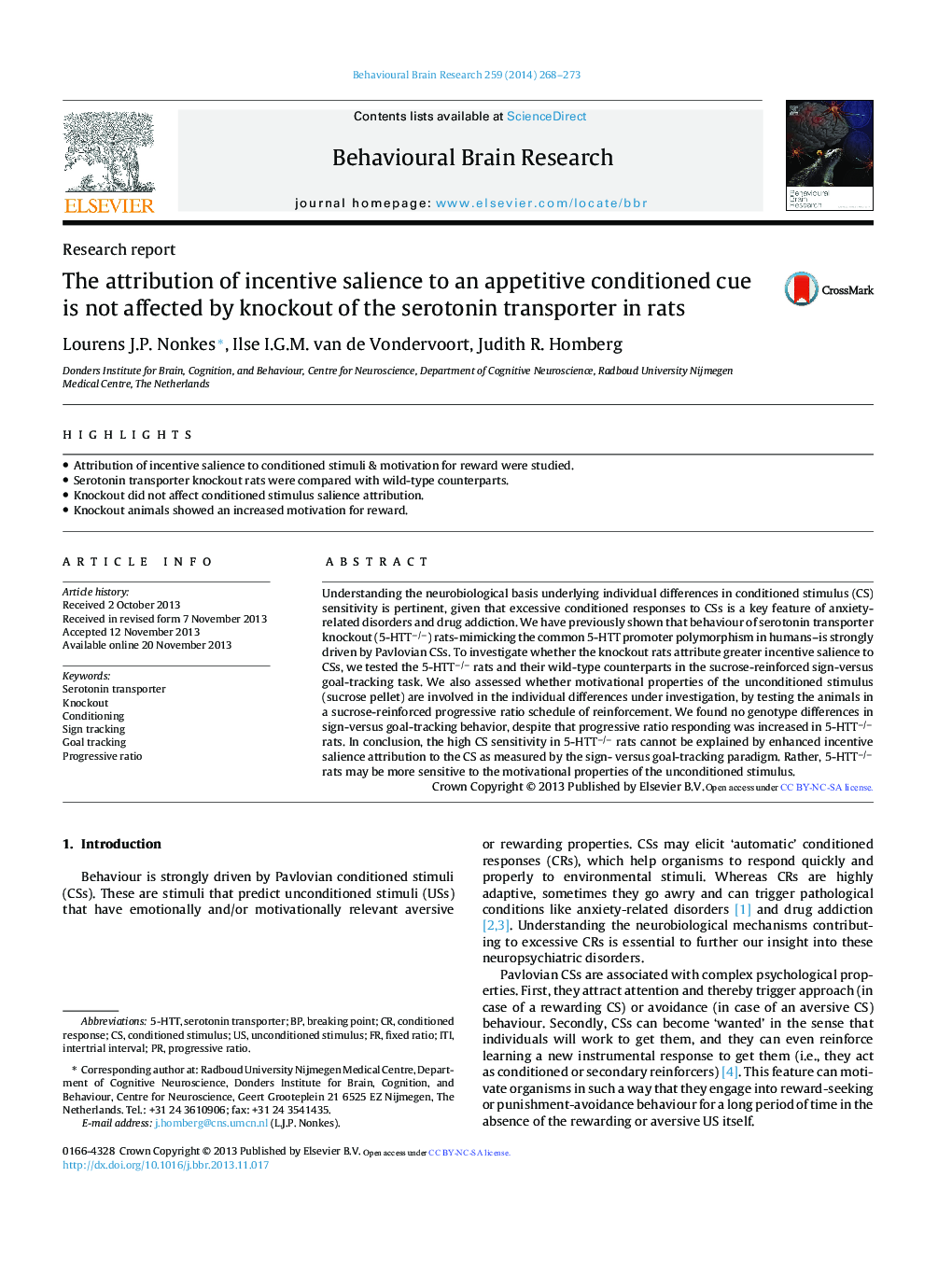| Article ID | Journal | Published Year | Pages | File Type |
|---|---|---|---|---|
| 6258587 | Behavioural Brain Research | 2014 | 6 Pages |
â¢Attribution of incentive salience to conditioned stimuli & motivation for reward were studied.â¢Serotonin transporter knockout rats were compared with wild-type counterparts.â¢Knockout did not affect conditioned stimulus salience attribution.â¢Knockout animals showed an increased motivation for reward.
Understanding the neurobiological basis underlying individual differences in conditioned stimulus (CS) sensitivity is pertinent, given that excessive conditioned responses to CSs is a key feature of anxiety-related disorders and drug addiction. We have previously shown that behaviour of serotonin transporter knockout (5-HTTâ/â) rats-mimicking the common 5-HTT promoter polymorphism in humans-is strongly driven by Pavlovian CSs. To investigate whether the knockout rats attribute greater incentive salience to CSs, we tested the 5-HTTâ/â rats and their wild-type counterparts in the sucrose-reinforced sign-versus goal-tracking task. We also assessed whether motivational properties of the unconditioned stimulus (sucrose pellet) are involved in the individual differences under investigation, by testing the animals in a sucrose-reinforced progressive ratio schedule of reinforcement. We found no genotype differences in sign-versus goal-tracking behavior, despite that progressive ratio responding was increased in 5-HTTâ/â rats. In conclusion, the high CS sensitivity in 5-HTTâ/â rats cannot be explained by enhanced incentive salience attribution to the CS as measured by the sign- versus goal-tracking paradigm. Rather, 5-HTTâ/â rats may be more sensitive to the motivational properties of the unconditioned stimulus.
